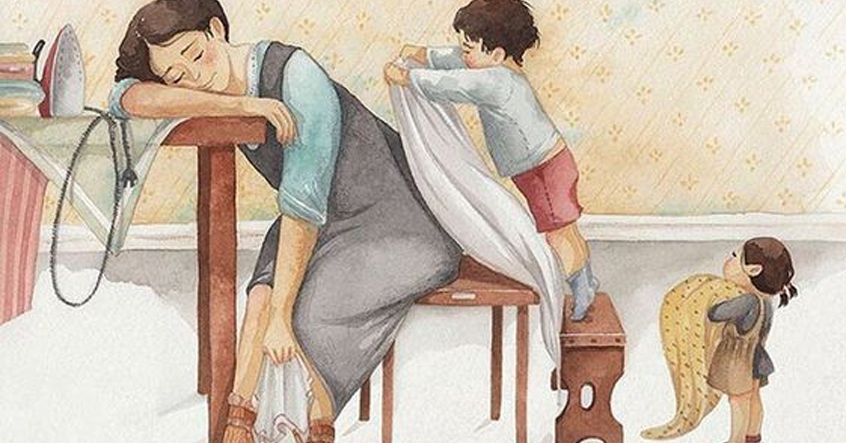Arguments within the home always leave people feeling anxious and fearful.
The arguments within a household always create an atmosphere of uneasiness and fear, like a heavy stone dropping into a calm lake, creating ripples of worry. Each family member experiences a sense of apprehension when the arguments start to arise. The sounds of arguments not only bring tension to the household but also take away the warmth and tranquility that a family should have.

These arguments are not only conflicts among family members but also contain various conflicting issues. It could be pressures from work, academic burdens, or conflicts in relationships. These conflicts are like toxins that invade each individual’s soul, gradually eroding the harmony within the family, creating division and indifference among loved ones, friends, and destroying the unity and stability of the family.
The family plays an important role in the development of children. Growing up in an environment that often contains many arguments can negatively impact a child’s mental well-being. They may experience feelings of fear, anxiety, and insecurity, which can affect their self-confidence and emotional management skills. Additionally, children often imitate adult behaviors, and witnessing frequent arguments can lead them to learn negative behaviors, negatively impacting their relationships and social communication skills in the future.
The family is a delicate and complex ecosystem that requires respect and effort from all members to maintain. When conflicting voices arise, we should use intelligence and courage to resolve them, rather than seeing them as a threat.
Complaining is also an inappropriate sound to appear in a family.
Complaining is an inappropriate sound to appear in the family space. Often, complaints arise from a lack of understanding, lack of information, or lack of trust in each other.
When family members do not understand each other’s needs and emotions, relationships encounter difficulties and lead to overall dissatisfaction. To eliminate disturbances in the family, it is necessary to establish open communication. Everyone in the family should share honestly, listen to each other, and not let small issues become significant.

Roles and responsibilities within the family also play an important role in generating complaints. Each member should share family responsibilities, from taking care of children to taking care of the elderly, to create fair distribution. When responsibilities are fairly divided, everyone feels valued and valued, reducing feelings of resentment. Parents need to be role models, creating a positive environment and encouraging children to participate in family activities to maintain harmony.
Emotional communication within the family is equally important. Show love and care for family members, helping them feel warmth. Accept imperfections and respect the independence of each person. Compassion and understanding can reduce complaints and strengthen relationships within the family.
Our ancestors said, “Unfair wealth leads to chaos, while harmony brings prosperity,” meaning that “Wealth inequality leads to disorder, while harmony brings prosperity to everything.” We need to reduce family blaming, enhance personal responsibility, and create harmony. In the family, respect and intelligent thinking can create a warm and harmonious environment. Only in this way can our home truly become a haven for the soul and a place we belong.







































